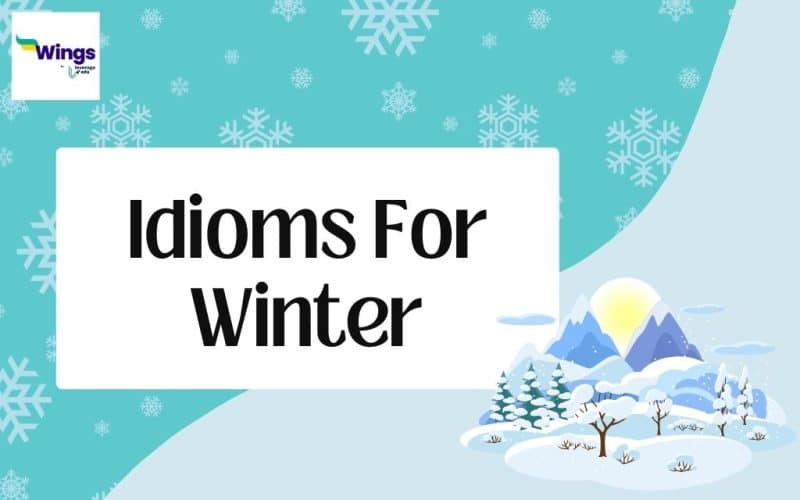Idioms are phrases or expressions that carry a figurative meaning different from the literal interpretation of their individual words. These linguistic quirks often reflect cultural nuances and can be challenging for non-native speakers to understand. Idioms add color and depth to language, making conversations more engaging and expressive.
Here are seven winter-related idioms, along with their meanings and examples:
Break the Ice
Meaning: To initiate a conversation or interaction in a social situation.
Example: “At the winter party, Jane decided to break the ice by telling a funny story about her skiing mishap.”
Also Read: Idioms for Teachers
Winter is Coming
Meaning: A phrase that signifies an upcoming challenging or difficult period.
Example: “The company’s financial reports suggest that a tough quarter is ahead; winter is coming for the business.”
Cold Shoulder
Meaning: To show indifference or deliberate neglect to someone.
Example: “Despite his efforts to reconcile, she gave him the cold shoulder after their argument.”
Snowed Under
Meaning: To be overwhelmed with a lot of work or responsibilities.
Example: “During the holiday season, the store manager was snowed under with inventory management tasks.”
Also Read: 150 Common: Difficult Idioms with Example
In the Dead of Winter
Meaning: Refers to a time when it’s coldest and darkest during the winter months.
Example: “They decided to go on a camping trip in the dead of winter, hoping to experience the beauty of the snowy landscape.”
Winter Wonderland
Meaning: A picturesque and enchanting winter scene.
Example: “The forest covered in snow looked like a winter wonderland, with trees adorned in white and glistening ice.”
Also Read: Idioms for Beginners
Throw Cold Water On
Meaning: To discourage or dampen enthusiasm.
Example: “His friends threw cold water on his plans to organize a winter camping expedition due to the extreme weather conditions.”
To read more about idioms you can check our page at Leverage Edu.
 One app for all your study abroad needs
One app for all your study abroad needs














 45,000+ students realised their study abroad dream with us. Take the first step today.
45,000+ students realised their study abroad dream with us. Take the first step today.

